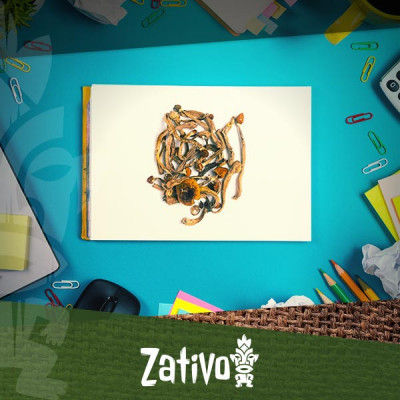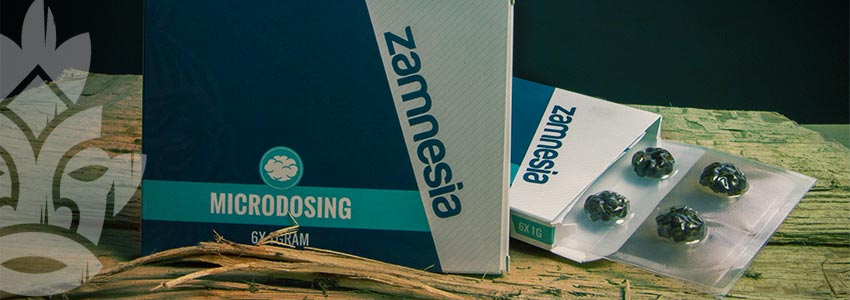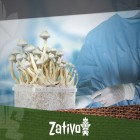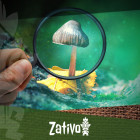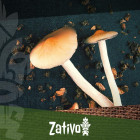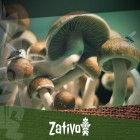Don't have an account?
Register NowYou have to add to cart at least 5 bottles or any program to make checkout.
- BlogDo Magic Mushrooms Make You More Creative?
Do Magic Mushrooms Make You More Creative?
Published: June 25th, 2020
Categories:
Magic Mushrooms
Psilocybin: the source of countless mystical, transcendental, and inspirational experiences. Many musicians, artists, poets, and authors attribute moments of creativity and clarity to psychoactive fungi. However, many of these individuals were wildly creative before their experiences—did psilocybin really make a large impact? Probably!
MAGIC MUSHROOMS AND CREATIVITY
Psilocybin mushrooms are one of the most powerful natural psychedelics on Earth. These mysterious life forms tend to follow humans around as they love the environments we create—especially cow pastures full of manure. This close relationship means humans have readily ingested these fungi throughout history.
Magic mushrooms have been used for ceremonial, spiritual, and recreational purposes by numerous cultures. They’ve inspired cave paintings and stone carvings, and still act as a catalyst for artistic works today. Through his “stoned ape theory”, author Terence McKenna put forth the hypothesis that psilocybin mushrooms contributed to the evolution of the human brain. Where else would self-awareness and the abstract ideas of faith, art, and music have come from? Could these be echoes of the ancient creative mind at work?
Regardless of their evolutionary role, psilocybin mushrooms have certainly inspired some of the most creative minds of the modern day. Visionary artists—those who paint the messages they feel and experience during a trip—are a perfect example.
Of course, it comes as no surprise that an hours-long hallucinogenic experience can inspire some degree of creativity. Simply looking into nature while sober can result in such breakthrough moments. Layering such a powerful molecule as psilocybin on top greatly enhances the experience.
In recent years, modern science has started to probe what exactly psilocybin does to the human brain. More specifically, researchers are attempting to record and quantify the effects of psilocybin on creative thinking.
DOES A SINGLE DOSE OF PSILOCYBIN BOOST CREATIVITY?

Scores of anecdotal accounts tell tales of “breakthrough” psilocybin experiences that led to a cascade of creative thoughts, projects, and outcomes. Research conducted at Maastricht University in the Netherlands and published in the Journal of Psychoactive Drugs backs up these claims.
The authors of the paper mention recent studies that showed psilocybin to produce enhanced creative processes after a single dose. However, they pose the question of whether this creative boost outlasts the trip itself, or simply fades right after.
With a cohort of 55 individuals, the researchers set out to examine the sub-acute effects of psilocybin on creative thinking, empathy, and subjective well-being. The authors state the importance of both creativity and empathy in everyday life, and the role of creative and flexible thinking as a prerequisite for empathy.
The study participants took part in a psilocybin retreat in the Netherlands, and the researchers assessed markers of creativity, empathy, and well-being on three occasions: the evening before the experience, the morning after, and seven days after the retreat. The participants took part in several tasks designed to measure these variables. The picture concept task was used to assess creativity, specifically divergent thinking—a process associated with new ideas. In contrast, convergent thinking involves logic, accuracy, and a single optimal outcome.
The researchers employed the multifaceted empathy test to quantify cognitive and emotional empathy, and the satisfaction with life scale to measure well-being. The results showed that divergent thinking increased the morning after ingestion, whereas convergent thinking remained unchanged. Interestingly, divergent thinking returned to baseline seven days later, and convergent thinking increased.
Emotional empathy received a boost the morning after, and cognitive empathy remained unaffected. Participants scored higher in well-being both the morning after and seven days after. In conclusion, the researchers state that the results show psilocybin’s ability to promote constructs of creativity, empathy, and subjective well-being. The evidence that a single psychedelic dose of psilocybin boosts creativity is quite strong. But what about smaller, less intense doses?
DOES THE SAME APPLY TO MICRODOSING?
Microdosing involves taking a sub-perceptual dose of psilocybin. Not enough to trip, but enough to feel other, more subtle benefits. Dr James Fadiman popularised this method of ingestion after publishing his book The Psychedelic Explorer’s Guide: Safe, Therapeutic and Sacred Journeys.
A starter microdose typically consists of around 0.1g of dried shroom powder. Users can then adjust their dose over time according to their experience to find their sweet spot. The Fadiman protocol recommends taking a microdose once every three days, with two days off in between each dose. Alternatively, the Stamets protocol recommends taking a microdose—alongside lion’s mane mushroom and vitamin B3—for five subsequent days, followed by two days off.
Science has yet to thoroughly investigate the effects of microdosing, although Dr Fadiman launched large-scale citizen research on the topic. Scores of collated anecdotal accounts point towards improvements in mental acuity, openness, and creative output. A rare publication on the topic backs up some of these anecdotal findings. Published in the journal Original Investigation, the observational study investigated the effects of microdosing on creativity and other variables.
The participants—all 909 of them—had experienced either regular or occasional microdoses of psilocybin or LSD. They were required to self-report their microdosing behaviours using a series of questionnaires concerning variables such as open-mindedness and wisdom. Compared to non-microdosers, microdosers scored lower on measures of dysfunctional attitudes and negative emotionality, and higher on wisdom, open-mindedness, and creativity.
PSILOCYBIN AND EXTENDED PERIODS OF CREATIVITY
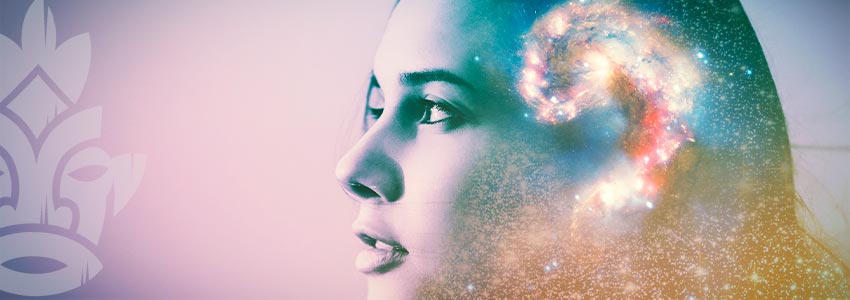
The research above suggests that psilocybin can influence and inspire the human mind. Both anecdotal evidence and scientific research suggest that this powerful molecule can enhance creativity beyond the psychedelic experience itself.
A macrodose—a large dose—of psilocybin mushrooms appears to improve measures of creativity and empathy for up to a week, whereas microdoses may offer increases in creativity for extended periods, depending on how long a protocol is adhered to.
The research on psilocybin and creativity remains in the early stages, but so far, the results look promising. Could psilocybin become a widespread, creativity-boosting nootropic of the future? We will have to wait and see.

